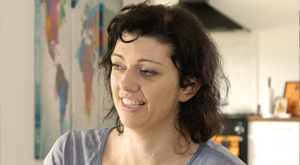What is a spinal injury?
The spinal cord is an extension of our brain and houses the nerves needed to carry messages from our brain to the rest of our body and back again. When the spinal cord is damaged these messages cannot be transported leading to a reduction in the ability to freely control movement, and for the brain to receive messages of sensation back again.
The extent of the altered movement and sensation depends on the site of the injury and it is the area below an injury that is affected. Damage to the spinal cord can be caused by a trauma such as an accident, infection or disease.
If the damage occurs in the neck region then it is likely that all 4 limbs and possibly some trunk muscles may be affected, this is called tetraplegia. If the damage is in the back then it is likely that the legs will be affected and possibly some trunk muscles, this is called paraplegia.
What are the most common difficulties associated with a spinal injury?
The effects of spinal injuries can be varied but reduced movement will cause challenges in everyday life. Below are some of these challenges:
- Reduced movement in the lower limbs is likely to require the need for a wheelchair. This may mean that a previously accessible house or car is now more challenging. Getting into and around the house, using the bathroom and toilet, moving from a wheelchair onto a bed or sofa are all likely challenges that will arise
- Previous work roles may be more challenging in terms of accessibility and role requirements and alterations may need to be looked at
- Sports and hobbies may pose challenges to a fulltime wheelchair user in terms of accessibility or the nature of the activity, for example sailing or rugby
- If there is a reduction in the fine control of the hands then activities that require this skill may be challenging. This includes activities such as washing and dressing, cutting up food and independently feeding oneself, drinking, managing with toileting, using household controls such as keys, remote controls, window latches or smart phones for example.
If you would like to learn more about how we as occupational therapists can help people overcome common difficulties associated with spinal injuries, you will find some useful links at the bottom of this page.
How can occupational therapy help following a spinal injury?
Hand therapy
An occupational therapist can provide splints and exercise programmes to maintain functional positioning, prevent contractures and maintain aesthetics.
Housing adaptations or new builds
Occupational therapists have expert knowledge on the housing needs of clients with a spinal cord injury. They work with the client to learn how they wish to, and can live, in their home environment and then make recommendations to adapt it accordingly. This may involve major works such as bathroom and kitchen adaptations, through floor lifts, doorway widening and ramps, or it may involve smaller changes with grab rails and an altered layout. Our team recognise the importance of a home remaining just that, and not becoming a clinical environment. Through discrete environmental design we aim to ensure that a client's home meets their needs whilst being their place of relaxation and sanctuary.
Equipment
There are likely to be items of specialist equipment that are required to help a client achieve their potential and to get the most out of their day. This may be chairs and beds or it might be environmental control systems allowing a client to operate their television, radio, lights, door-answering or curtains from their chair. Wheelchairs – these are an important area of occupational therapy support for clients following spinal injury. The wheelchair market is vast and having the right professional advice and guidance on the selection of the most clinically appropriate chair for each client’s needs is important.
Moving & handling
If voluntary movement is reduced, an occupational therapist may need to look at how people or equipment can be used to facilitate movement between a wheelchair, bed, toilet, bath or shower chair. This can be through the use of hoists and slings as well as ensuring that all parties have training on its safe and appropriate use.
Rehabilitation
The rehabilitation goals of a client are likely to be as unique as they are. An occupational therapist will identify these goals at the start of their involvement and put a plan in place to achieve them with their client. Rehabilitation following spinal injury can be a slow process and our input aims to supplement and support the input that is likely to have been received as an inpatient.
Vocational support
When the time is right, a client may wish to look at returning to some form of paid or voluntary employment. An occupational therapist will analyse previous job roles and current skills and goals and devise a return to work plan with their client.
Problem solving
Occupational therapists are excellent problem solvers, we work with clients for a sustained period of time to help them overcome the challenges that their injury presents to their life. We are always focused on goals and led by the client to support them in achieving their full rehabilitation potential.


